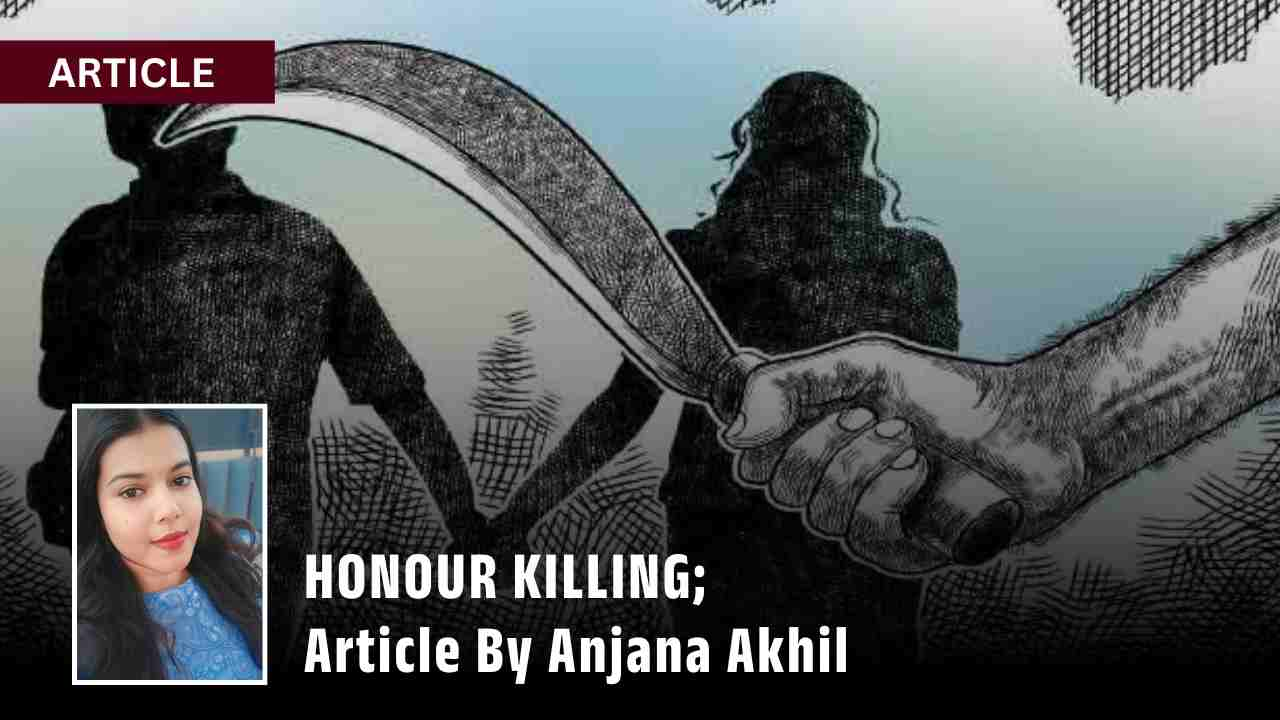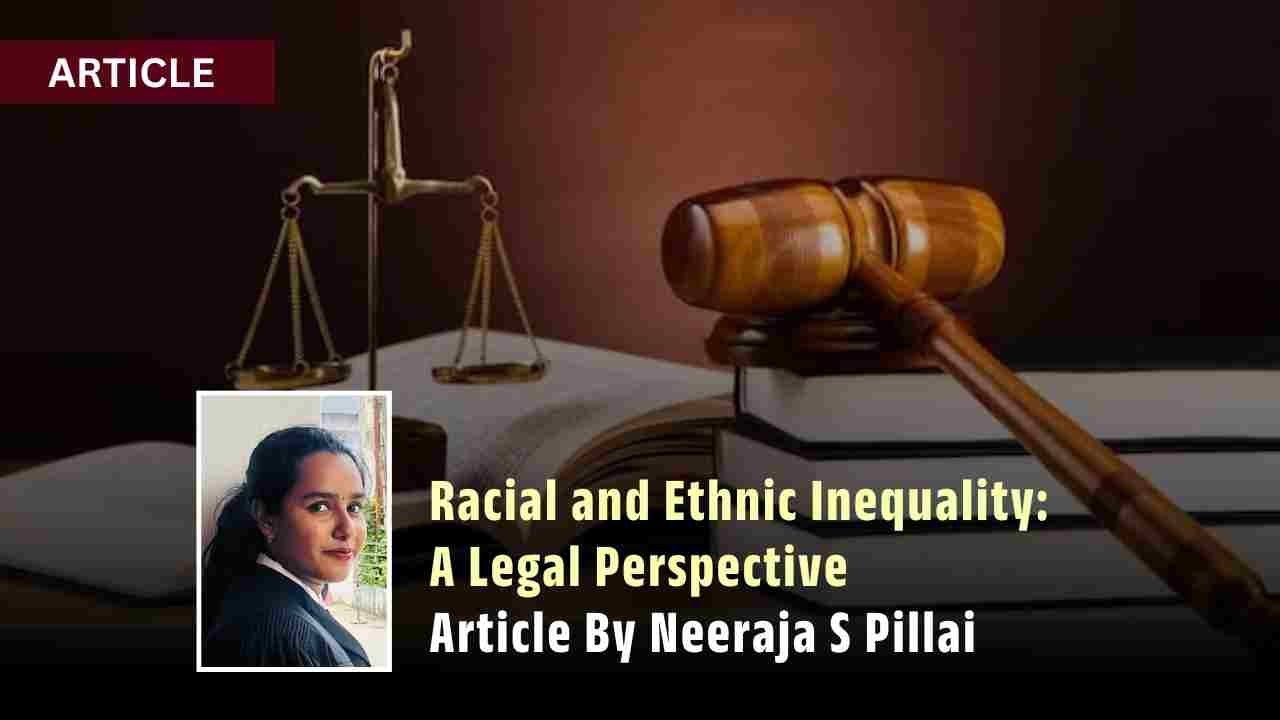Cultural crimes are those crimes that appear or are explained in a cultural context. One of the most horrific recent developments is the increase in honour killings, and these have shaken the nation. Honour killing, a type of cultural crime, involves the murder of a member of a family or clannmost often a woman by one or more male relatives. The offenders, and occasionally even the public in general, feel the victim has brought dishonour or shame to the clan, community, or family. It is referred to as customary killings, which is a reflection of the cultural or traditional reasons behind it.The purpose of this article is twofold. First, we want to explain what ‘honour killing’ is and why it occurs. Secondly, we want to address the issue of the role of international law with respect to honour killings. Second, we wish to know the laws of the land today to fight honour killings and determine other legal steps that need to be taken to prevent such a ghastly crime. This three-article article initially briefly addresses the definition and causes of honour killing. The second section is devoted to the prevailing and suggested legal mechanism for preventing honour killings, assisted with court rulings. It also incorporates an analysis of international human rights law and reaction of other nations towards the practice. The third and final portion of the paper discusses the future potential for additional legal reforms and regulatory measures to be adopted, which must be embraced for effectively tackling honour killings.
DEFINITION OF HONOUR KILLING
Human Rights Watch’s definition of “honour killings” as the killing, often murder, by male relatives of female relatives, presumed to have brought shame on them. A woman may be attacked by (members of) her family for a number of reasons, such as: refusing to be married off against her will, victim of an attempted sexual assault, requesting divorce—even from an abusive husband or (allegedly) committing adultery. Suspicions that a woman has acted in a manner which “dishonours” her family are enough to provoke an attempt on her life. Therefore an honour killing (also referred to as a customary killing), may be the killing of a member of a family or social group by other members of the same, because the killers’ (and perhaps that of society in general) perception is that the victim has brought shame on the family or the community. Thus a killing carried out on the grounds of protecting something held to be under a special culture the “honor” of one’s own family vs. theReasons for honour killing.The typical explanation for the perpetration of an ‘honour killing’ is that a family member has brought shame to the family. The perceived shame can take a very broad range of forms, depending on cultural, social, or religious norms e.g. refusal to accept an arranged marriage, having a relationship disapproved of by the family, wearing attire considered inappropriate, or having independence that is not consistent with traditional norms.
International Laws Regarding Honour Killing,“Honour killings” are established manifestation of violence against women under international human rights law, as they represent direct violations of women’s rights to life, dignity, and security of person. International law requires states to prevent violence against women by gender, including by members of their families, and to eschew any appeal to “honour” as a valid legal defence to such violence.These murders form a gross and brutal denial of human rights, a breach of the most basic right the right to life and of several articles of the Universal Declaration of Human Rights (1948). Furthermore, the fact that honour killings are covered by laws which treat them leniently is a clear violation of the International Covenant on Civil and Political Rights (1966), which limits the application of the death penalty to the most serious crimes. Honour killings also violate the Convention on the Elimination of All Forms of Discrimination against Women (1979), under which states are bound to take measures with a view to eliminating discrimination against and violence against women in all their aspects.
International Legal FrameworksUniversal Declaration of Human Rights (UDHR), 1948Articles 3 and 5 ensure the right to life, liberty, and security and prohibit cruel, inhuman, or degrading treatment. International Covenant on Civil and Political Rights (ICCPR), 1966 Article 6 protects the right to life. Article 7 prohibits torture or cruel, inhuman, or degrading treatment. c. Convention on the Elimination of All Forms of Discrimination Against Women (CEDAW), 1979Obligates states to eliminate discrimination against women in all forms, including violence like honor killings. d. Declaration on the Elimination of Violence Against Women (1993) Explicitly defines violence against women to include family-based violence such as honor killings.Regional Legal InstrumentsInter-American Convention on the Prevention, Punishment, and Eradication of Violence against Women (Belem do Para Convention)Istanbul Convention (Council of Europe)First legally binding treaty to address violence against women, including “crimes committed in the name of so-called ‘honour'”.c. African Charter on Human and Peoples’ Rights on the Rights of Women in Africa (Maputo Protocol) Addresses gender-based violence and harmful practices. UN and International ResponsesUN Resolutions have requested states to criminalize honor killings and close down impunity.Special Rapporteurs report periodically on such abuses.UN Women and OHCHR collaborate with local governments to transform attitudes and legislation. International Law Obligations of StatesGovernments are required to: Criminalize honor killings with zero tolerance. Investigate and prosecute the perpetrators. Ensure protection for potential victims. Transform discriminatory laws and cultural attitudes. National Responses Vary Widely Some have: Severe laws (e.g. Jordan revised its penal code to decrease impunity). Legal loopholes or leniency (e.g. in some regions of Pakistan or the Middle East, courts may give lighter sentences under the guise of “honor.
Related case law
Thenkurissi honour killing case In a rare decision, the Palakkad Additional Sessions Court in Kerala sentenced two men to life for the 2020 honour killing of 27-year-old Aneesh. The two men, Prabhu Kumar (Aneesh’s father-in-law) and Suresh (his wife’s uncle), were further instructed to pay ₹50,000 each as fine. Aneesh, a man belonging to the lower caste, had wedded Haritha, a well-to-do upper-caste family girl, on September 28, 2020. Their inter-caste marriage was strongly resisted by Haritha’s kin. On December 25, 2020, just 88 days into his wedding, Aneesh was brutally assaulted with an iron rod and a long knife by Prabhu Kumar and Suresh on his way back from work, and he was murdered. The prosecution offered evidence through 59 witnesses, including Aneesh’s brother, who was present during the murder. The court could not establish a conspiracy despite the overwhelming evidence, leading to life sentences rather than the death penalty. Haritha was not happy with the verdict, stating that the punishment was not sufficient for such a heinous crime and revealed she had received threats from the accused parties throughout the case This case brings into focus India’s continued problem of caste violence and honour killings, highlighting the situation of inter-caste couples and what needs to be as a change of society.
Kevin murder case In a ruling that would echo in society, the state government has turned down the request for normal leave by Syanu Chacko, who is incarcerated in jail after being convicted in the state’s first honour killing case. Syanu Chacko and 10 others were awarded double life terms for murdering a Dalit Christian, Kevin P Joseph, of Kottayam in 2018. Kevin had married Neenu Chacko, sister of Syanu, despite her family opposition, and the mounting anger resulted in the murder. Syanu is being housed in the Central Jail in Thiruvananthapuram. Considering the opinion of the home department after keeping in mind the court judgment, police report, probation report and minutes of the Advisory Committee of Central Prison and Correctional Home, the government “found that it is not a fit case to grant ordinary leave.” The government, in dismissing the report, said that “granting leave to such convicts may send a wrong message to society that the punitive system is so weak and may encourage such types of crimes.” The prisoner can get sixty days of regular leave within a calendar year. It was the mother of Syanu, Rahina Chacko, who had moved the High Court challenging the refusal of leave to her son in 2023. The court ordered the state government to take up the application for leave on a priority basis at the earliest, at least within one month of receipt of a copy of the judgment. The District Probation Officer, Kollam, had put on record that Syanu’s neighbors had diverse views about his rel.Manoj Babli Case two victims Manoj and Babli are the protagonists of this historical case of honour killing. the khap panchayat decreed that they both must proclaim each other as their brother and sister since both of them had loved the other and had married against the wishes oth the khap panchayat. they were not ready to swallow this, thous. insecticides were forced down their throats when they objected. After they were strangulated, their corpses were dumped into the canal. Afterwards, a number of the members of this family involved in this crime were caught and given prison terms
Conclusion
honour killing are india’s worst and violence crime against anybody. it has been existing for a long time in indian culture and it still gets done in most of corridors in the country. such acts clearly indicate that more then half of the Indians still remain in the tight pillars of the estate system and actually moment youths dont’s have capacity to decide over their own lives.




